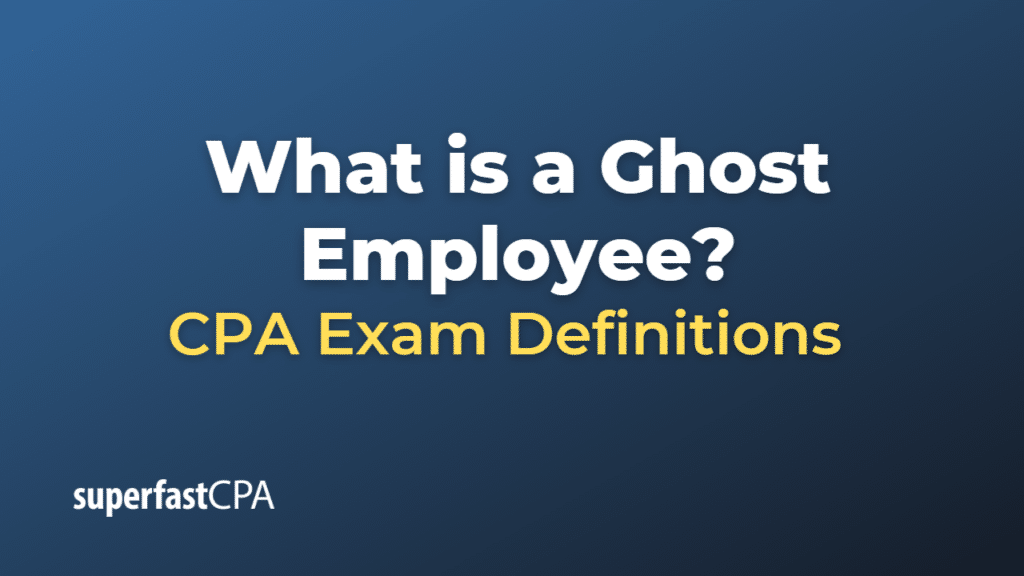Ghost Employee
A ghost employee is a type of fraud in which a person is on a company’s payroll, but they don’t actually work for the company. This fraud can occur in several ways, including:
- A real person who does not work for the company: The ghost employee is a real individual, but they don’t actually work for the company. Instead, they collect paychecks for doing no work.
- A fictitious person: The ghost employee is completely made up. Their name, social security number, and other details might be invented by the person committing the fraud.
- A former employee who has left the company: The ghost employee might be someone who used to work for the company, but has since left. Their name and details remain on the payroll system, and they continue to receive paychecks.
Ghost employee fraud is typically perpetrated by someone inside the company who has the power to add new employees to the payroll or edit existing employee information. The person committing the fraud will add the ghost employee to the payroll, and then divert the ghost employee’s paychecks to themselves. This can be a very costly form of fraud, and it can go undetected for a long time if a company doesn’t have strong internal controls.
Example of a Ghost Employee
Bob is the payroll manager for XYZ Company. Bob realizes that he has the ability to add new employees to the payroll system without anyone else’s approval. He decides to exploit this vulnerability to earn some extra money.
Bob creates a ghost employee, whom he names “John Doe”. He enters a fake social security number and other details for John Doe into the payroll system. He sets John Doe’s direct deposit information to an account that Bob himself controls.
Every pay period, the company issues a paycheck to John Doe, which is directly deposited into Bob’s extra bank account. Bob is careful to set John Doe’s salary at a level that won’t draw attention, and he regularly changes the ghost employee’s details to avoid detection.
Unfortunately for Bob, the company eventually conducts an internal audit, which includes a verification of all employee details. The auditors notice that John Doe’s social security number is invalid, and they can’t find any evidence that John Doe ever worked for the company. Upon further investigation, they discover the bank account where John Doe’s paychecks are being deposited is actually in Bob’s name. Bob is caught and faces legal consequences for his fraudulent actions.
This hypothetical scenario demonstrates how a ghost employee scheme can be carried out, and also underscores the importance of internal controls and regular audits in preventing such fraud.













